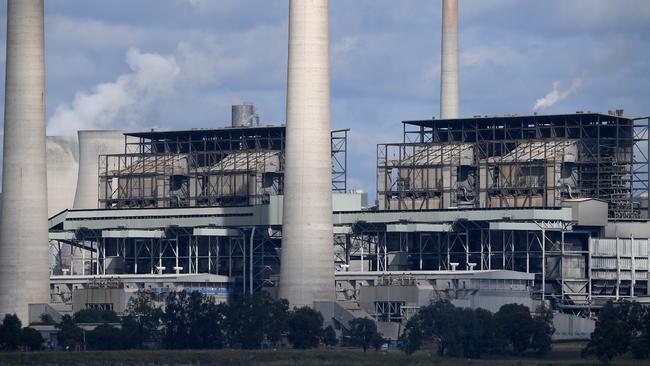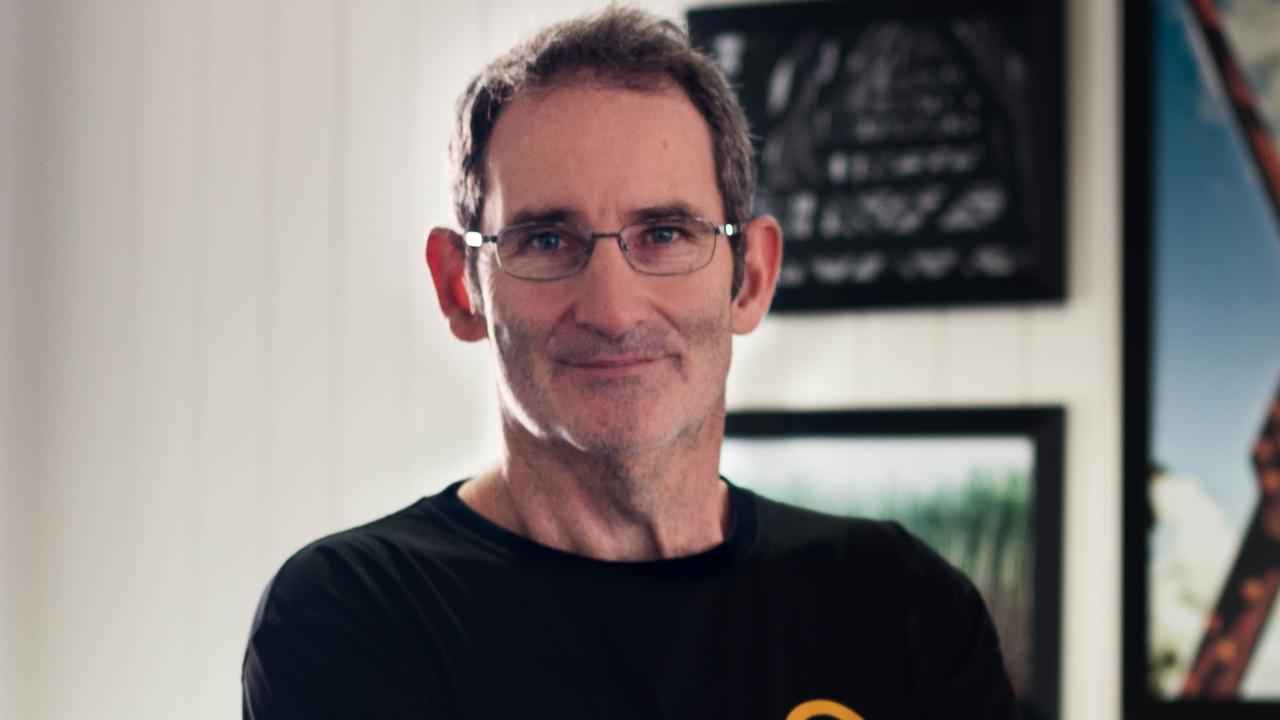Morrison ‘likely’ to intervene on AGL Energy if Mike Cannon-Brookes takeover bid succeeds
AGL has slammed the Cannon-Brookes plan as unfeasible, while analysts say the Morrison government would likely intervene if it proceeds.

Business
Don't miss out on the headlines from Business. Followed categories will be added to My News.
AGL Energy said the Mike Cannon-Brookes-led consortium will need to boost its takeover bid by at least another $1bn to be taken seriously with chief executive Graeme Hunt slamming its early coal retirement plan as unfeasible.
An extra hurdle also looms with the Morrison government likely to stage an intervention if Mike Cannon-Brookes successfully wins control of AGL and shuts coal by 2030 while competition regulator approval looms as a major hurdle, brokers have cautioned.
The tech billionaire lobbed a buyout offer valuing AGL at $5bn or $8bn including debt, which was swiftly rejected for undervaluing the company.
The tilt was pitched 5 per cent higher than AGL’s closing share price on February 18, but the power giant’s boss said takeover bids needed to be at a 30 to 40 per cent premium to get serious traction in the market.
That would imply adding at least an extra $1bn being added to its offer.
“Typically, for a change of control of a company, shareholders are looking for a premium 30-40 plus per cent over whatever the appropriate share trading range is for the company,” Mr Hunt told The Australian.
“There isn’t a sensible offer available to the company which would cause the board to reconsider its position.”
The Morrison government is likely to stage an intervention if Mike Cannon-Brookes successfully wins control of AGL Energy and closes its giant coal plants early while competition regulator approval looms as a major hurdle, brokers said.
“Given AGL represents more than 20 per cent of National Electricity Market generation supply, we believe government intervention is likely if the acquirers intend to close the generation assets early,” JP Morgan analyst Mark Busuttil said.
UBS agreed noting Foreign Investment Review Board approval for any future bids may assess the consortium‘s proposal to accelerate the closure of AGL’s coal fired generators “which could attract the ire of the Government unless undertakings are made that replacement capacity be developed prior to retiring plant,” UBS analyst Tom Allen said.
“However we note the effectiveness and enforceability of undertakings was a key factor in the ACCC rejecting Brookfield’s proposed acquisition of Asciano’s Pacific National rail assets in 2015.”
Mr Cannon-Brookes and his investment partner Brookfield would shut AGL’s coal plants by 2030, meaning Victoria’s Loy Yang B station would close 15 years earlier than currently scheduled in 2045.
AGL said it was an unworkable plan and the consortium would not be able to roll out $20bn of investment quickly enough to replace the lost baseload capacity.
“If you want to build something in a shorter period of time, it might be possible but not in a period of eight years,” said Markus Brokhof, AGL‘s chief operating officer.
The investment duo has pledged $20bn of capital to fund the transition of AGL’s generation fleet consistent with the 1.5 degree target outlined in the Paris climate accord, with a scheme to replace 7 gigawatts of capacity through “a build-out” of at least 8GW of clean energy and storage.
But AGL said that will not be enough generation to replace the twin coal plants exiting.
The proposed level of new supply “does not replace closing Bayswater and Loy Yang at all. The point is that renewable renewables is not a one for one replacement. It‘s more like two and a half or three times just because of the capacity factors of when the sun doesn’t shine and the wind doesn’t blow,” Mr Hunt said.
“So to say that there is the money available and a pipeline of projects which they haven‘t told us what they are is insufficient. But regardless of that, it’s about managing a responsible and considered implementation of the change.”
Competition clearances also present an additional hurdle, according to UBS, given Brookfield’s ownership of transmission operator AusNet Services.
“We believe there is no precedent for Australian regulators allowing vertically integrated private ownership across all four components of the electricity supply chain. If the consortium’s proposal were allowed, it would see Brookfield own a controlling interest in: the largest generator in Victoria Loy Yang A, the entire Victoria electricity transmission network, the largest of five Victorian electricity distribution networks and the largest retail portfolio in Victoria,” Mr Allen said.
“The ACCC — and the Competition and Consumer Act — have the legislative instrument to address cross-ownership in the context of a merger/acquisition. While not insurmountable, we expect the ACCC‘s review would be complex and introduce material approval risk.”
Treasurer Josh Frydenberg also ramped up claims on Tuesday that energy prices will rise if coal fired power stations close early, calling it an “indisputable fact” in reference to the closure of Victoria’s Hazelwood plant in 2017.
That was largely due to the owners of Hazelwood giving just five months notice whereas Mr Cannon-Brookes has effectively given eight years notice.
Mr Cannon-Brookes remains confident in holding talks with AGL and engaging with the board, but JP Morgan said that may not occur.
“It does not appear the company will engage with the consortium and remains committed to demerging the business this year,” Mr Busuttil said.
Still, Morningstar said AGL rejection of the bid was the right decision with shareholders able to grab a higher takeover price after a planned split of the company.
“We’re strongly against an AGL Energy takeover at this time and at the current share price,” Morningstar analyst Adrian Atkins said. “AGL is heavily undervalued and a better takeover price would be achieved after the demerger, or better still, after earnings recover over the next couple of years.”
Morningstar calculates the $7.50 offer is 44 per cent below its fair value estimate.
“Even if a higher bid eventuates, we doubt it would approach our fair value estimate. The demerger and expected earnings recovery would significantly de-risk the business and improve takeover prospects.”
Shareholders in the 180-year-old electricity company are due to vote in June on a plan to split it into two companies, a green retailer named AGL Australia seeking to be fully carbon neutral by 2040, and a coal-dominated generator, Accel Energy, targeting net zero emissions by 2047.
It tips the retail-focused AGL Australia will be an attractive takeover target after the split takes place with Ampol, Shell, Total, Enel and Iberdrola all potential suitors.
“These firms would be less likely to enter a bidding war for AGL as it currently stands because of the risks of divesting the coal power stations, which they would be unlikely to keep.”
Originally published as Morrison ‘likely’ to intervene on AGL Energy if Mike Cannon-Brookes takeover bid succeeds





